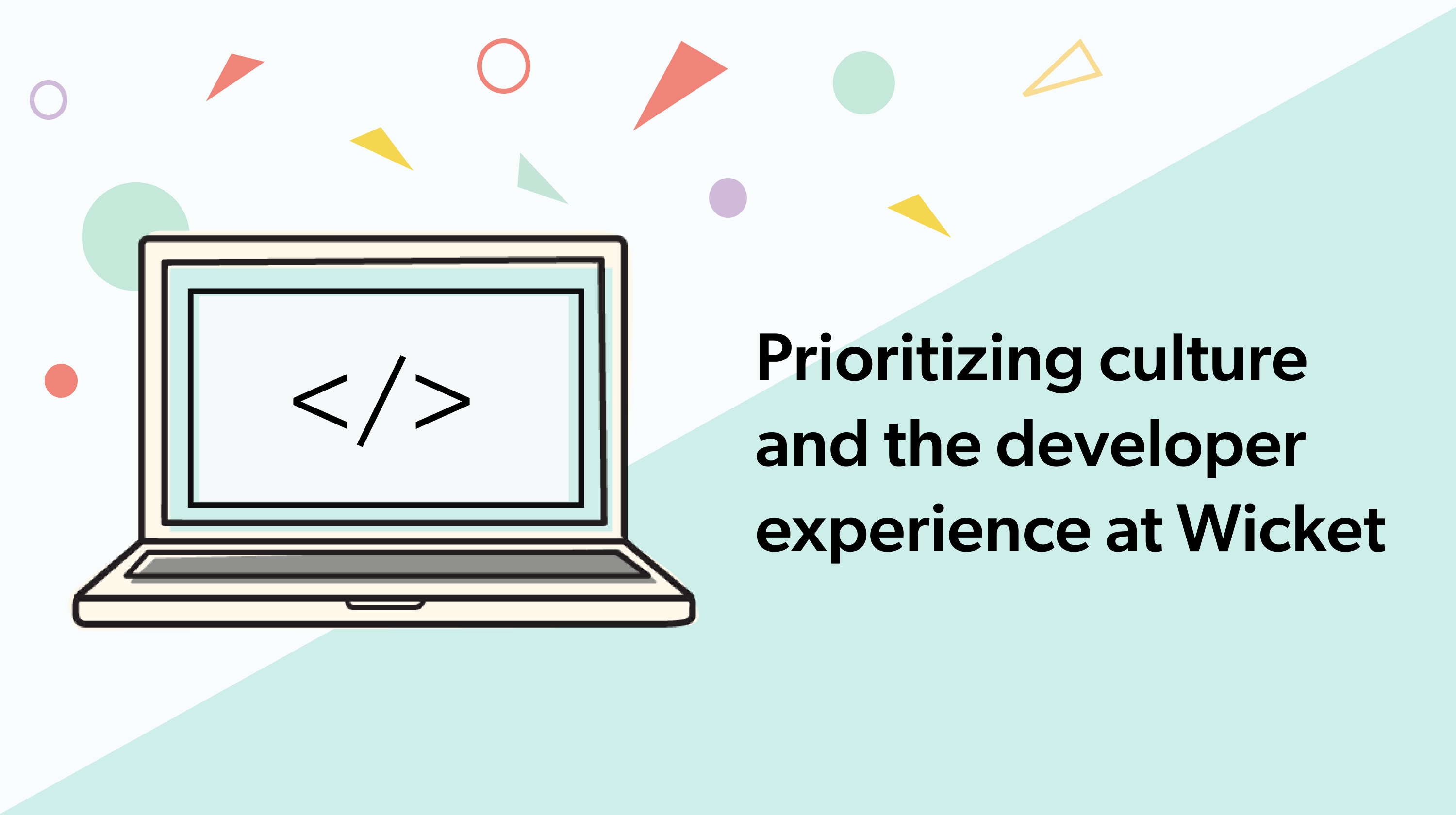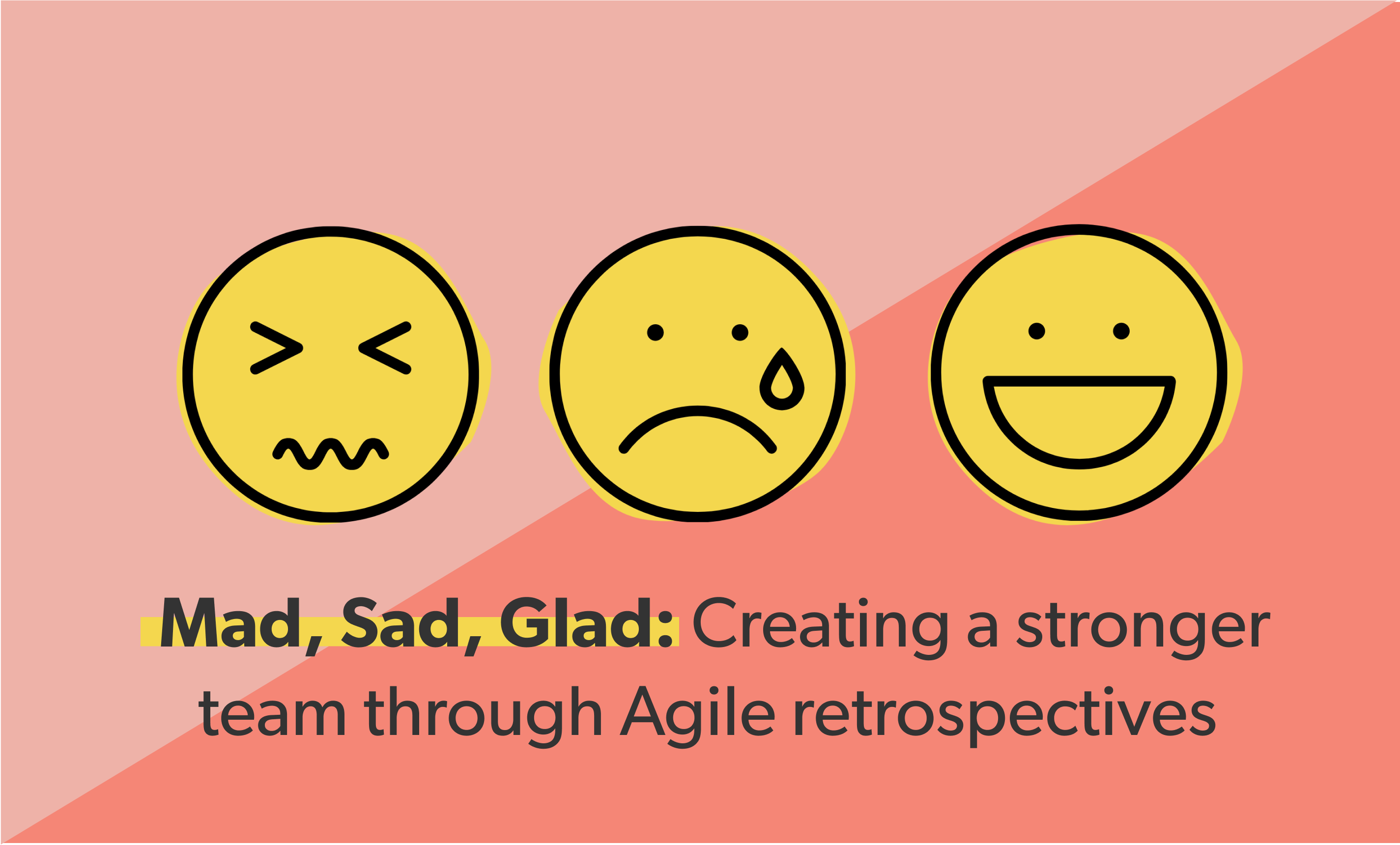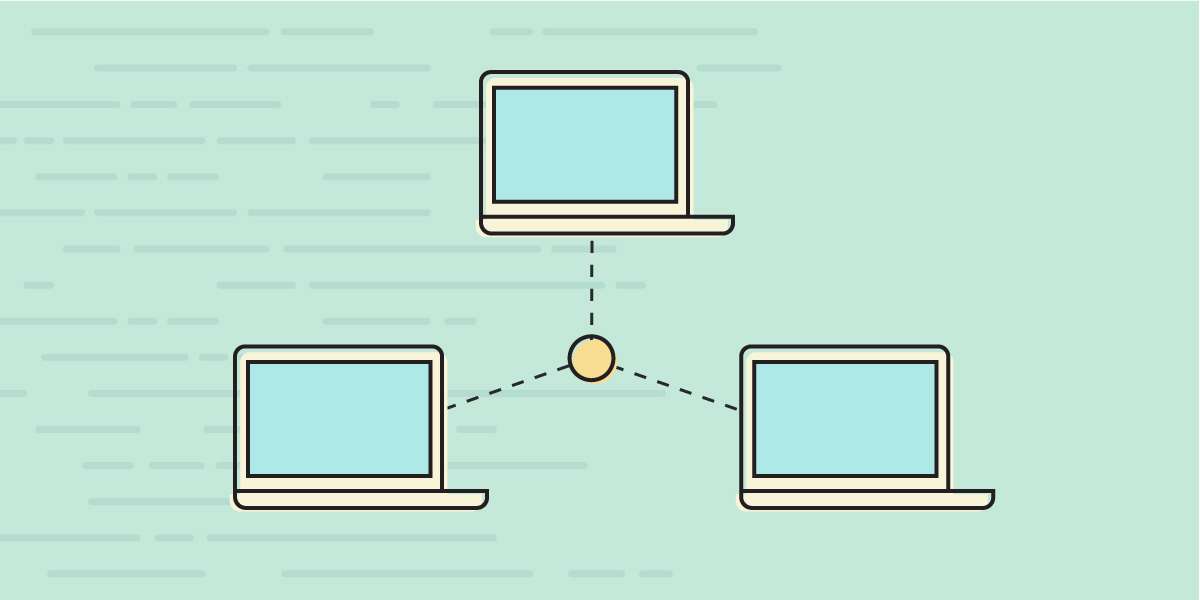Prioritizing culture and the developer experience at Wicket

Behind every great product sits a hard-working team (like a really hard-working team) building a seamless experience for the end-user. And if the designers and developers enjoy the tech stack, workflows, and features that they’re working on everyone, including the product, will benefit. Let’s also not underestimate the power of a positive culture.
At Wicket, we dedicate time to creating a rewarding developer experience. We understand to achieve this, we need to listen. Each team member is hired for a reason. Everyone brings something unique to the table, and therefore we value each team member’s input.
We also recognize that developers chose this career path because they want to feel challenged every day and never want to stop learning. At Wicket, we encourage ongoing learning and experimentation. You may break some stuff here and there, but that’s ok. As long as you learn from the experience, we’ll call it a win.
Wicket processes and workflows
As a startup, we’re constantly growing and evolving. What’s great about Wicket is that there’s very little separation between leadership and developers. Our leadership team makes it a point to stay engaged with every aspect of the business, including current projects in development.
Wicket encourages developers to focus on innovation when it comes to solutions. In addition, we use Agile methodology for all product planning and development. Don’t worry if you’re not familiar with Agile. Once you come to Wicket, you’ll quickly learn why it’s the ideal path for developers.
Agile embraces a mindset that allows our team members to handle complex work that evolves along with the needs of end-users. Some standard processes used to make Agile work for developers include:
Scrum
Scrum is an Agile framework designed to help teams work together productively. Everyone involved learns from the experience of working on a project by learning how to organize work around everyone’s strengths. In the end, the team looks back on what was accomplished and where there’s room for improvement.
Work is accomplished in time-boxed periods called sprints. Before a sprint kicks in, the team comes together to define tasks to achieve in an upcoming sprint and assign responsibilities. Anything that can’t get accomplished during a sprint gets moved to a product backlog.
Kanban
Kanban focuses on enabling real-time communication about the capacity of team members to handle different units of work. Everything’s visualized on a Kanban board, allowing team members to get a clear sense of where various tasks stand in terms of completion.
Lean
Lean Agile methodology avoids waste, whether supplies or developers’ precious time. It’s about looking for ways to do things more efficiently and continuously improve the development process.
MVP
MVP stands for Minimum Viable Product and is a core component of the Agile Methodology. To sum it up, developers produce a version of a product with enough features to satisfy customers’ immediate needs. They evaluate the platform and provide feedback developers use to refine the product in the future.
Making Agile work for Wicket
The iterative nature of Scrum fits well into Wicket’s atmosphere of collaboration and focus on making ongoing improvements to the platform. We implement Scrum in the following manner to keep projects flowing smoothly:
- Start with planning
- Set up goals
- Meet daily to discuss and adjust accordingly
- Review progress
- Celebrate wins
- Go over issues together
- Look for ways to make improvements
To accomplish the above, team members work with a collaborative product roadmap. In addition, we use Feature Discovery to make end-users aware of new capabilities offered by the Wicket platform. Our development team also puts a lot of emphasis on planning so that team members have a clear direction of the objectives Wicket wants to achieve during various project phases.
Wicket commits fully to the guiding principles of Modern Agile:
- Make People Awesome
- Make Safety a Prerequisite
- Experiment & Learn Rapidly
- Deliver Value Continuously
How Wicket handles communication and collaboration
One of the challenges often presented with remote work is the supposed inability of organizations to stay connected with the team. At Wicket, we’ve found that nothing could be further from the truth. While we emphasize delivering quality, we understand that no one’s perfect, and there’s always room for improvement.
We use project management software Apptio TargetProcess to support Scrum planning. It’s where we store the Wicket product roadmap. Team members use the platform to visualize and prioritize sprint features and perform other functions like:
- Team collaboration
- Code reviews
- Testing
- Quality assurance
In addition, Wicket leans on Miro, an online whiteboarding tool, for functions like:
- Team retrospectives
- Company OKR tracking
- Workflow visualization
- Discovery sessions
Video calls and conferences are held using Zoom. We recognize the need to have heads-down time to focus on development. For that reason, we only bring developers into meetings when necessary.
Weekly updates
Wicket holds a company-wide call every Friday afternoon. We keep things relaxed and fun as our -leadership team provides updates about what’s happened during the week. There’s typically a theme set up to encourage free-flowing conversation.
Monthly demos
Here’s where things start to get fun. Every month Wicket provides an opportunity for various workforce members to showcase the hard work they’ve put into our projects. It’s a chance to celebrate the work of our team members and emphasize their importance to the success of the company.
Biweekly Sprint planning
As part of our embrace of Scrum Agile methodology, every other Monday kicks off the start of a new Sprint. We groom our backlog, set goals for the team, figure out the priority order for different items, and decide who will assume responsibility for each task.
Here’s what you can expect from a typical Wicket sprint:
- Day 1 through 9: Wicket holds a daily morning standup where we check in on team members. Team members provide everyone with a progress update and offer input to others in the group as needed.
- Day 10: We hold a Sprint Review where everyone displays what they’ve accomplished up to that point. There’s also a Sprint Retro where team members flesh out challenges that arose during the most recent sprint and where we can make improvements during the next sprint.
- 1:1s Every team member gets one-on-one time with their manager. It’s a chance for you as a developer to go over your personal goals, talk about your experiences at Wicket, and receive guidance.
Quarterly reviews and events
Wicket takes time every quarter to perform a company-wide retro to look back at events that occurred during the last three months. It’s a chance to push our product forward and see where we can make improvements as a team. It’s important to Wicket as an organization that all team members feel empowered enough to give voice to their concerns and feel they will be taken seriously. That means getting into what did and didn’t work while learning from the experience.
The Wicket leadership team holds a town hall each quarter that goes over everything we accomplished. That includes celebrating wins, reviewing progress on key performance indicators (KPIs), and looking to future success.
Performance reviews
To create a better developer experience, Wicket team members complete a self-assessment during each quarter. Once complete, managers review the output and provide feedback to help you perform up to your abilities. It’s also a chance for our teams to receive advice on what they can do to progress toward their long-term career goals.
Hack Week
As much as Wicket loves its product roadmap (and we really do), a great developer experience is important enough for us to ice it for a week. Instead, we dedicate time to pushing experimentation, learning, and creation among our developer community.
In the lead-up to Hack Week, everyone gets the opportunity to pitch a new feature or improvement. Leadership goes over all the ideas and picks a select few to work on during that period. In addition, team members can volunteer to commit time to different projects. It’s our way of encouraging collaboration among the workforce on projects we wouldn’t usually handle.
The Cool Stuff (a.k.a. our Tech Stack)
Our primary focus is on web and object-oriented development using languages and frameworks like Ruby, Rails, React, JavaScript, and Python.
When it comes to data storage and management, Wicket is always in the market for developers with experience using the following products:
- Tableau
- PostgreSQL
- JsonSchema
- AWS Glue
- AWS Step Functions
In addition, our Amazon Web Services (AWS) + DevOps stack consists of:
- Automated Infrastructure
- Serverless
- Containers
- Docker
- GitHub
- GitHub Actions
However, developers at Wicket aren’t limited to the above offerings. We promote a flexible development environment that allows our team members to pick the setup that works best for them. A typical stack among our developer community includes working on a Mac machine with VSCode, Docker, and GitHub installed. Just let us know what you prefer.
The CI/CD Pipeline uses tools like AWS CDK/Cloud Formation, GitHub Actions, Docker, and ECS to accommodate fast, frequent and safe automated code deployments. We rely on pull requests and code reviews to safeguard our codebase. In addition, our teams employ automated testing, including Regression and Unit, to reduce the occurrence of bugs and ensure safe deployments.
Monitoring and tracking
When customers use Wicket, we want them to have a seamless experience. In our mind, healthy apps equal healthy customers. To accommodate that goal, we provide continuous observation and monitoring to the entire Wicket platform using tools like:
- ElasticSearch/OpenSearch combined with Kibana for application and infrastructure log analysis
- AWS Cloudwatch and Cloudwatch logs
- Front-end error detection
- KPI monitoring
- Automated alarms when something goes wrong
What we’re working on right now
Because Wicket is constantly changing and evolving, there’s always something new and exciting to stimulate the creative senses of our developers. We’re currently focused on using Serverless/Low code integrations between Wicket and other SaaS platforms. In addition, we’re looking to add Segments and Organizational Membership Assignments as new features to the Wicket API and UI.
Wicket is also working on modernizing our API using webhooks. In addition, we want to help customers resolve problems by generating insights from data. That means we are interested in hiring new team members who want to help design and create dashboards, metrics, and reports.
Become part of Wicket
True technology lovers understand that there’s never an end to learning. That’s why Wicket remains committed to improving the developer experience by providing opportunities for team members to learn new languages and frameworks, and find ways to incorporate that knowledge into the Wicket IT infrastructure.
Employees can take four paid days off each year to complete professional development initiatives in our Employee Protection Program. In addition, team members receive a $500 stipend to help cover the costs of additional courses and workshops. Developers are the foundation of Wicket. If you’re interested in pursuing an opportunity within our organization, visit Wicket’s careers page for current job openings.




